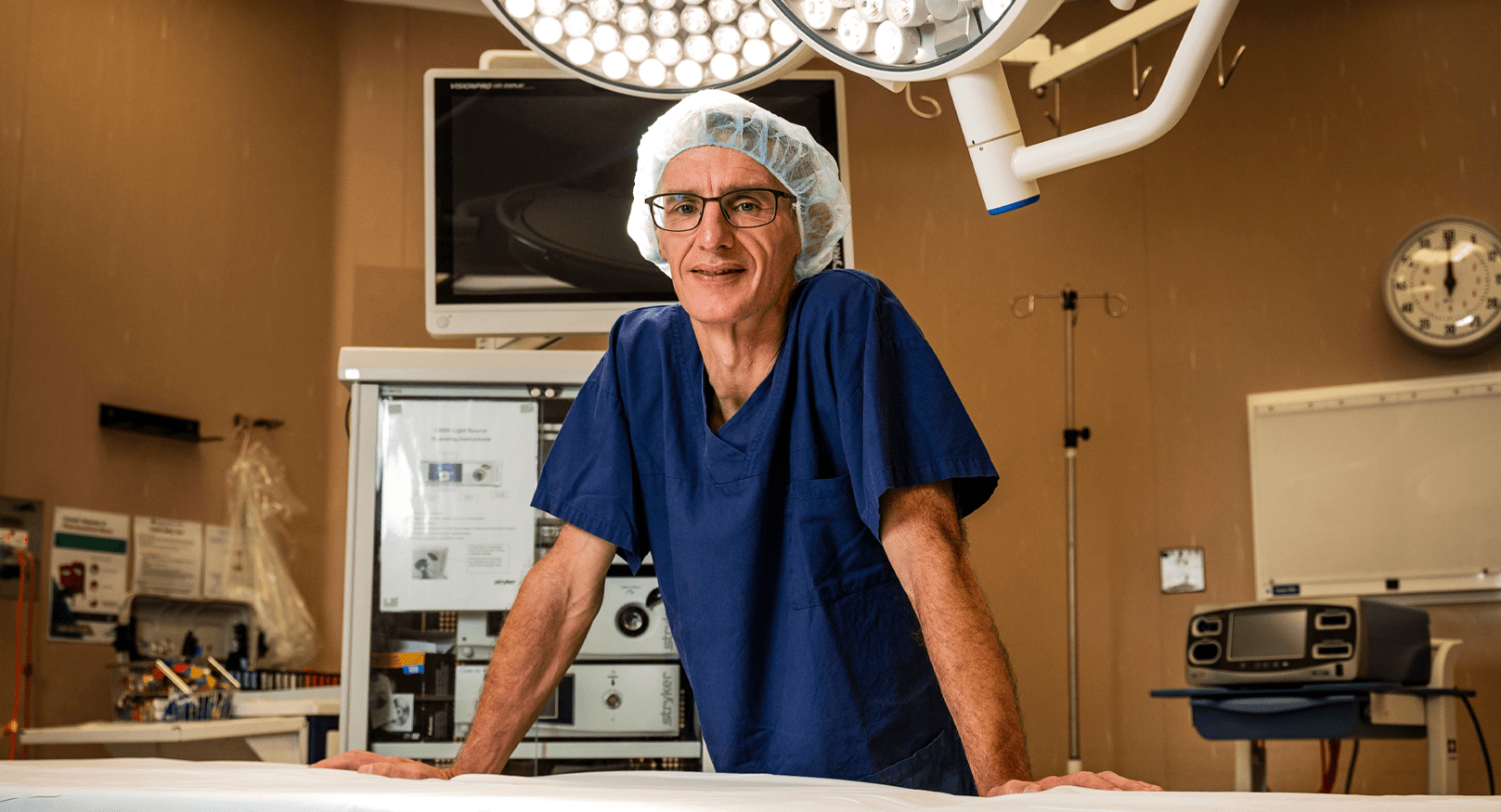Vertical sleeve gastrectomy, a type of bariatric surgery, is a popular method of surgical treatment that greatly benefits people affected by obesity. The procedure is minimally invasive, with part of the stomach removed. The remaining pouch is only a tiny fraction of what it would have been. Although Vertical sleeve gastrectomy offers no major cure-all, quite a few people have achieved significant success in their weight loss efforts by undergoing it. Everything about VSG from start to finish is covered in this comprehensive guide: the advantages and disadvantages, how to get ready for the operation itself, what to do after surgery and how postoperative life has changed.
What is Vertical Sleeve Gastrectomy All About
Vertical sleeve gastrectomy is an approach to weight loss by artificially narrowing your stomach. The surgeon removes some of the stomach tissue during the surgery, creating a pouch shaped like the sleeve. The patient is less hungry; the smaller pouch requires less food. This leads to reduced consumption, so they lose weight.
Advantages of Vertical Sleeve Gastrectomy
Vertical sleeve gastrectomy (VSG) is a surgical procedure designed to decrease the size of the stomach, which can lead to reduced weight gain. Benefits of vertical sleeve gastrectomy from an anatomical perspective include:
- Significant Weight Loss: VSG effectively enhances weight loss. Most patients see significant decreases in weight within a year of surgery, and they keep on losing several pounds later, too.
- Better Obesity-health Conditions: There is often a connection between VSG and significant reductions in diseases such as type 2 diabetes, hypertension, sleep apnea and high cholesterol.
- Lower Hunger: During this operation, a large portion of the stomach is removed, including the region responsible for producing ghrelin, a hormone that causes people to feel hungry. Therefore, patients often feel less hungry–which improves weight loss and the sustained maintenance of a lower body weight throughout life.
- Few Nutritional Deficiencies: VSG differs from other bariatric surgery Perth, especially gastric bypass surgery. There is no vital risk related to severe malnutrition mainly because it does not involve reassembling (or bypassing) large areas of the intestine.
- Surgery Made Easier: Vertical sleeve gastrectomy is more straightforward than a gastric bypass procedure because it requires no rerouting or reconnecting intestines.
Risks and Considerations
Vertical sleeve gastrectomy (VSG) frequently assists in weight loss and preventing obesity-related complications. However, we should understand that they may pose unseen risks and occasional complications. We need to think about possible risks and loopholes.
- Danger of Operation: Definitely, VSG does have its benefits. However, there are still dangers involved in having this operation. Or responding to anaesthesia? Infection, bleeding, and even blood clots can all be problems. It’s different for different people. It all comes down to balancing your health status and the team members’ know-how level.
- Leaks and Complications: A breach in the stomach or lower oesophagus can be fraught with trouble along the suture line. Abscesses can also form. The range of possible complications ranges from infection to peritonitis – an inflammation of the abdominal cavity. In such cases, Repair surgery may be necessary.
- Stomach Shrinkage: After a while, in some cases, the rest of the stomach gets smaller and narrower, a condition called gastric stenosis. You might vomit or be unable to eat. This may require additional medical help.
- Heartburn and Reflux: Some patients may notice more pronounced gastroesophageal reflux disease (GERD) symptoms such as heartburn, regurgitation, and difficulty swallowing after VSG. In severe cases, treatment or revision surgery may be helpful.
- Nutritional Deficiencies: While typically there aren’t significant nutritional deficiencies from VSG like there can be with a gastric bypass, in particular, vitamins and minerals run the risk of deficiency. These include iron, calcium, vitamin B12, and folate. For their nutrition to remain optimal, patients must take vitamins and have regular checkups.
- Lifestyle Changes: VSG involves a lot of lifestyle changes like dietary adjustments as well as regular exercise. People are still required to keep to a lifetime of healthy living if they wish to keep the pounds off.
Preparation and Recovery
Before VSG, patients need a comprehensive checkup to ensure they qualify for surgery. Beforehand, they will likely have at least one conference with weight-loss professionals, including doctors and dieticians, psychologists and others in the healthcare field.
In the postoperative period, it is their usual advice to start with a liquid diet for the first few weeks following the operation, then gradually advance to purees and soft foods. Regular appointments with the care provider are a must for both a medical checkup and your possible questions, as well as to provide ongoing support.
How Lifestyle Expects Change After Surgery
To have a successful outcome following the so-called fat surgery is zero secrets: real hope lies in effecting changes that are sustainable post-operation. These may be:
- Dietary Modifications: Patients must adhere strictly to a regulated diet, focusing on lean protein, fruits and vegetables and whole grains while avoiding processed foods, sugar, and high-fat foods.
- Regular Exercise: Regularly getting physical activity into daily life leads to weight loss and long-term weight maintenance, better overall health, and early detection of weight regain.
- Behavioural and Psychological Support: People often need help to change their eating habits, deal with body image issues, or talk because it helps alleviate some of the complexities of dealing with these eating issues. Many patients find ongoing support.
In Summary
Vertical Sleeve Gastrectomy is a potent weapon attacking obesity that can bring towering weight loss and dramatic improvements in obesity-related health conditions for many individuals. Even so, it is of utmost importance to consider VSG part and parcel of a thorough or comprehensive treatment plan. This includes pre-op evaluation, diligent post-op care, and lifelong commitment to healthy lifestyle changes. By understanding the trade-offs, hazards, and obligations bound up with VSG, individuals can lead a life of comfort after gaining weight.


